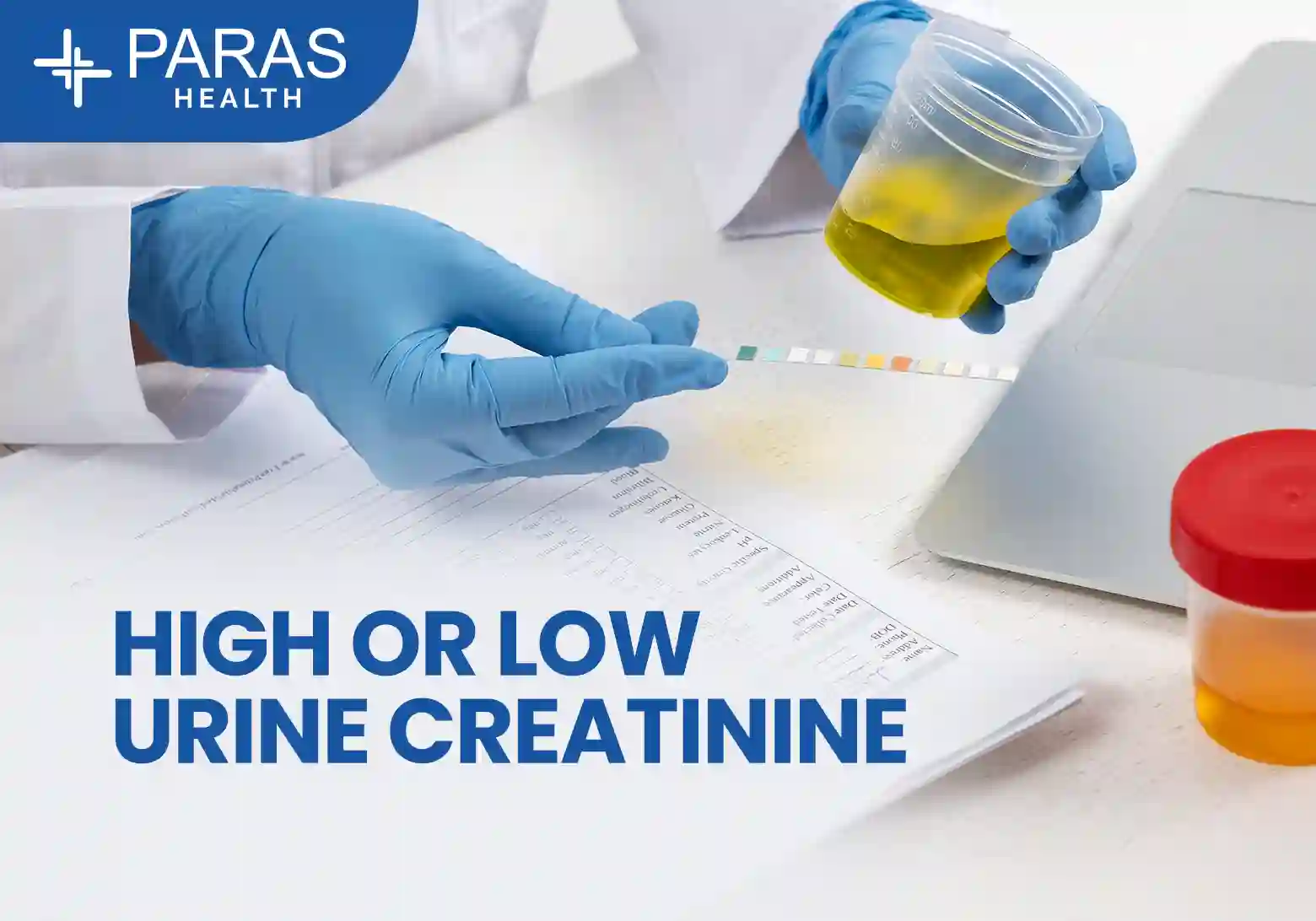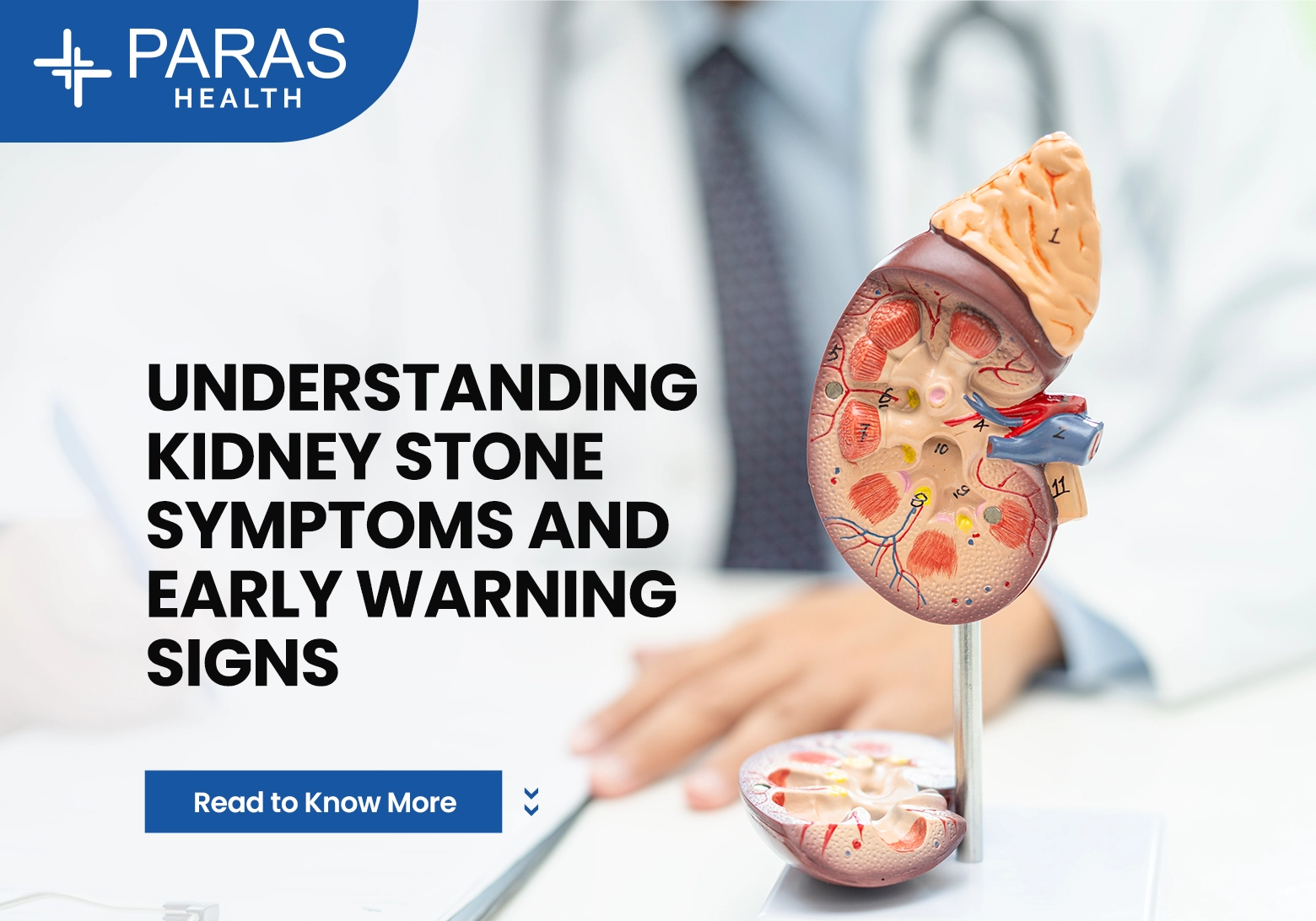Symptoms of Kidney Stones: How to Identify the Early Signs
Apr 25, 2025
Have you ever experienced a sudden, sharp pain in your back or side that made you double over? Or maybe you've noticed blood in your urine or a burning sensation while peeing? These could be symptoms of kidney stones, a common yet extremely painful condition that affects people of all ages.
Let’s break down everything you need to know about kidney stone symptoms, including how to recognize them early, what they feel like, and when to see a doctor.
What Are Kidney Stones?
Kidney stones are hard mineral and salt deposits that form in your kidneys. They can range in size from a grain of sand to a golf ball and often develop when your urine becomes too concentrated with substances like calcium, oxalate, and uric acid.
While some stones pass unnoticed, larger stones can cause severe symptoms and may need medical treatment.
Common Symptoms of Kidney Stones
The symptoms of kidney stones can vary depending on the size, type, and location of the stone. Here are some of the most common signs to watch out for:
Severe Pain Due to Kidney Stones
The most notable symptom is intense, cramping pain, often described as one of the worst pains a person can experience. This pain may start suddenly and can change in intensity or location as the stone moves through your urinary tract.
Pain in Lower Back or Side (Flank Pain)
You may feel pain in your lower back, side, or below the ribs, known as flank pain. The pain may radiate toward your lower abdomen or groin, depending on the stone’s position.
- Kidney stone pain in back
- Kidney stone pain in abdomen
- Kidney stone pain in groin
- Kidney stone pain in lower abdomen
Radiating Pain from Kidney Stones
As the stone moves, the pain may radiate downwards toward the bladder or genitals. This shifting pain is a key indicator of a kidney stone.
Burning Sensation During Urination
When the stone reaches the junction between your ureter and bladder, you may experience a burning feeling while urinating. This symptom can feel similar to a urinary tract infection.
Blood in Urine (Hematuria)
Is blood in urine a sign of kidney stones? Yes. Stones can irritate the urinary tract, leading to pink, red, or brown urine. If you notice this, it’s important to consult a doctor immediately.
Cloudy or Foul-Smelling Urine
Urine that looks cloudy or smells unusually strong may suggest infection or the presence of stones.
Frequent Urination with Kidney Stones
Kidney stones can increase the urge to urinate more frequently, especially if they are near the bladder. However, you may only pass small amounts of urine at a time.
Nausea and Vomiting
The intense pain from kidney stones can trigger nausea or vomiting, due to the connection between the kidneys and the digestive system.
Fever and Chills with Kidney Stones
A high fever or chills could be a sign that a kidney stone has caused an infection — this is a medical emergency and needs prompt attention.
Early Signs of Kidney Stones
Wondering what are the first signs of a kidney stone? Here’s what to look for:
- Mild discomfort in the back or side
- Slight changes in urine color or smell
- Occasional burning while urinating
- Increased frequency of urination
These initial symptoms of kidney stones may go unnoticed or be mistaken for a UTI. However, if you experience any of the above in combination, it’s time to take them seriously.
Kidney Stone Symptoms in Different Groups
In Men:
- Sharp pain in the back or groin
- Testicular pain or discomfort
- Difficulty urinating
In Women:
- Lower abdominal cramps
- Burning urination
- Misdiagnosis as menstrual cramps or UTI
In Children:
- Stomach pain
- Nausea or vomiting
- Blood in urine
During Pregnancy:
- Discomfort in the lower back
- Risk of complications if not treated
- Requires special care and diagnostic tools
How to Know If You Have Kidney Stones
If you’re experiencing any of these symptoms, especially persistent pain, blood in urine, or difficulty urinating, it's worth getting tested. You might be wondering, how does kidney stone pain feel? Most patients describe it as sharp, cramping, and unbearable, often coming in waves.
Diagnostic Tests for Kidney Stones
Doctors use several tests to confirm kidney stones:
- Ultrasound for kidney stones: Non-invasive and commonly used during pregnancy
- CT scan for kidney stones: Highly accurate and can detect even small stones
- Urine test for kidney stones: Identifies infection or crystal-forming substances
- X-rays or KUB (Kidneys, Ureters, Bladder) scans: To see stone position
These tests help determine the size, type, and location of the stone, guiding your treatment plan.
Complications and Emergency Symptoms
While many stones pass naturally, some can get stuck in the urinary tract, leading to complications. Watch for these emergency symptoms of kidney stones:
- High fever with chills
- Severe pain that doesn’t ease
- Inability to urinate
- Nausea and vomiting that won't stop
These could indicate an infection or blockage and need immediate medical care.
Signs a Kidney Stone Is Stuck or Passing
Signs kidney stone is stuck: Constant pain, no urine flow, severe nausea
Signs kidney stone is passing: Pain that shifts location, increased urge to urinate, small pieces of stone in urine
Do Kidney Stones Cause Urinary Problems?
Yes, they often do. Stones can block the flow of urine, cause painful urination, and increase the frequency and urgency of bathroom visits. Left untreated, they may even damage the kidneys.
Can Kidney Stones Cause Stomach Pain?
Yes, especially in children or when the pain radiates. It might be misdiagnosed as gas, constipation, or gastritis, but it’s important to consider kidney stones if stomach pain is paired with urinary changes or back pain.
When to See a Doctor for Kidney Stones
You should see a doctor as soon as you suspect symptoms. Don’t wait for the pain to get worse. Early diagnosis and treatment can prevent complications and reduce the need for surgery.
Final Word: Don’t Ignore the Signs
Symptoms of kidney stones may seem mild at first but can escalate quickly. Pay attention to your body, especially if you're prone to dehydration, high-protein diets, or have a family history of stones.
If you’re experiencing any of the symptoms mentioned, visit your nearest urologist or kidney specialist at Paras Hospital for a proper diagnosis and treatment plan.
🔍 Frequently Asked Questions (FAQs) on Symptoms of Kidney Stones
What are the first signs of a kidney stone?
The earliest signs usually include mild back pain, frequent urination, burning sensation while urinating, or slight changes in urine color or smell. These can be mistaken for a UTI or indigestion initially.
Where does kidney stone pain occur?
Pain typically starts in the lower back or side (flank) and can radiate to the abdomen, groin, or lower belly. The pain may shift as the stone moves.
Is blood in urine always a symptom of kidney stones?
Not always, but it's common. If you notice pink, red, or brown urine, it could indicate the stone is irritating your urinary tract. This is called hematuria and should be evaluated by a doctor.
Can kidney stones cause nausea or vomiting?
Yes. The intense pain caused by a kidney stone can trigger nausea or vomiting, especially when the stone obstructs the ureter.
Do men and women experience different symptoms?
Yes, symptoms like testicular pain in men or lower abdominal cramps in women may vary due to anatomy. Women often mistake the symptoms for menstrual pain or UTI.
Can kidney stones cause stomach pain?
Yes. Some people, especially children, may feel generalized stomach pain or cramping. This can sometimes lead to misdiagnosis as gas or gastritis.
What are the signs that a kidney stone is stuck?
If the stone is stuck, you might experience constant pain, inability to urinate, nausea, fever, or no movement in pain location. These are warning signs requiring immediate care.
When should I seek emergency medical help?
If you have fever with chills, unbearable pain, blood in urine, or vomiting, you should seek emergency medical attention. These could indicate a blockage or infection.
Are there differences in symptoms during pregnancy?
Yes. Symptoms may include flank pain, burning urination, or nausea. However, diagnosis needs extra caution — ultrasound is usually preferred for safe detection during pregnancy.
Can kidney stones cause urinary problems?
Absolutely. Kidney stones often lead to frequent urination, painful urination, urgency, or even difficulty passing urine when the stone obstructs the urinary tract.










